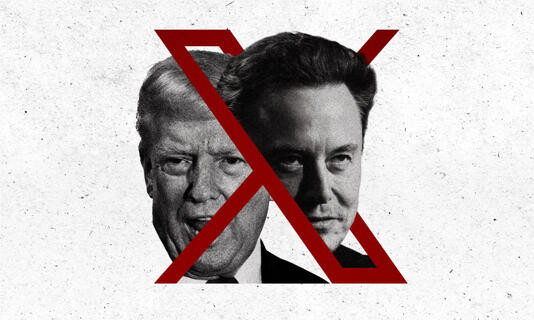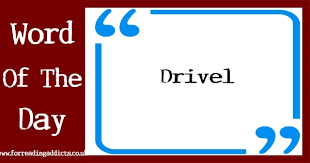Racism, misogyny, lies: how did X become so full of hatred? And is it ethical to keep using it?
Story by Zoe Williams (5min)

‘Musk is a tech utopian with no attachment to democracy.’
I considered leaving Twitter as soon as Elon Musk acquired it in 2022, just not wanting to be part of a community that could be bought, least of all by a man like him – the obnoxious “long hours at a high intensity” bullying of his staff began immediately. But I’ve had some of the most interesting conversations of my life on there, both randomly, ambling about, and solicited, for stories: “Anyone got catastrophically lonely during Covid?”; “Anyone hooked up with their secondary school boy/girlfriend?” We used to call it the place where you told the truth to strangers (Facebook was where you lied to your friends), and that wide-openness was reciprocal and gorgeous.
It got more unpleasant after the blue-tick fiasco: identity verification became something you could buy, which destroyed the trust quotient. So I joined the rival platform Mastodon, but fast realised that I would never get 70,000 followers on there like I had on Twitter. It wasn’t that I wanted the attention per se, just that my gang wasn’t varied or noisy enough. There’s something eerie and a bit depressing about a social media feed that doesn’t refresh often enough, like walking into a shopping mall where half the shops have closed down and the rest are all selling the same thing.
In 2023, the network now known as X began, and I joined Threads (which is owned by Meta), but all I ever see on it is strangers confessing to boring misdemeanours. I remained on X, where everything got darker. People get paid, indirectly through advertising, for engagement. Even that is a bit murky, since it’s described as “revenue sharing”, but you don’t get to see which ads’ revenues were shared with you, so can’t measure revenue-per-impression. Is X sharing it 50/50? Or 10/90? Are they actually paying you to generate hatred?
“What we’ve seen,” says Ed Saperia, dean of the London College of Political Technology, “is controversial content drives engagement. Extreme content drives engagement.” Creating toxic content became a viable livelihood, which my 16-year-old, on football X, noticed way before I did: people saying patently wrong things for hate-clicks. You might get a couple of thousand likes for noticing that David Cameron looks like Catherine the Great, but that’s nothing like the engagement you’ll get for attacking trans people, say. Those high-attention tweets go straight to the top of the For You feed, driven by a “black box algorithm designed to keep you scrolling”, as Rose Wang, COO of another rival, Bluesky, puts it, but the user experience is screeds of repetition on topics tailored to annoy you.
As a result of these changes, says Joe Mulhall, head of research at Hope Not Hate, “the platform has been flooded by individuals who were previously de-platformed, ranging from extreme niche accounts to figures like Tommy Robinson and Andrew Tate”. We saw the real-life effects of this when misinformation over the identity, ethnicity and faith of the killer of three young girls in Southport incited explicitly racist unrest across the UK this August, such as hasn’t been seen since the 70s. X, Mulhall says, “was a central hub not only for creating the climate for the riots, but also the organisation and distribution of content that led to riots”.
After the race riots in August it transpired that one man, “keyboard warrior” Wayne O’Rourke, convicted for inciting racial hatred on social media, was earning £1,400 a month from his activities on X. The blowhard Laurence Fox declared last month that he earns a similar amount from posting on X. O’Rourke had 90,000 followers; Tommy Robinson has more than a million, and it’s likely that he’s making far more.
Governments, meanwhile, have no reliable redress, even when, as Mulhall puts it, “decisions made on the west coast of America are demonstrably affecting our communities”. In April, Brazil’s president, Luiz Inácio Lula da Silva, sought suspensions of fewer than 100 X accounts, for hate speech and fake news – mainly supporters of his predecessor, Jair Bolsonaro, disputing the legitimacy of his defeat. X refused, and declined to represent itself in court. On Monday, the Brazilian supreme court unanimously upheld a ban on the entire platform, arguing that it “considered itself above the rule of law”. It’s extraordinary that Musk didn’t do more to avoid that, from a business perspective, but it may be that there are things he values more than money, such as immunity from governmental or democratic constraint.
So is it moral to remain on a platform that does so much to bring the politics of division and hatred off the keyboard and into real life? Is X any worse than Facebook, or TikTok, or (for God’s sake!) YouTube? And is it worse on purpose, which is to say, are we watching the unfolding of a Musk masterplan?
“It’s not the first time we’ve had extremist content online,” says Saperia. “There are lots of bad platforms, lots of bad things happen on them.” X’s problem may not be that its regulations are bad, but that its enforcement is bad, he points out, and it is not alone in that. “Have you looked at the UK court system lately? There are cases being heard from five years ago. If you don’t have laws, you don’t have a society.”
X might be both spur and muster point for civil unrest, from the January 6 US Capitol attack to Southport and beyond, but we should also keep in mind, Saperia says, that “politics is moving to the right, not just because of the media environment, but for complex economic reasons: the middle-class west is getting poorer”. Donald Trump may have shocked the US legacy media by speaking directly to voters with coarse, increasingly unhinged messaging, but if we think a contented population, secure in a prosperous future, would have embraced his authoritarian lurch, we’re dreaming. Rage is out there, whether social media bankrolls it or not, and “all the mainstream platforms were generally failing on hate speech”, Mulhall says. “They didn’t want this content but they were struggling to deal with it. Then they would step up a bit after a Charlottesville [the white supremacist rally in 2017] or Capitol Hill.”
Nevertheless, Hope Not Hate separates far-right online activism into three strains: mainstream platforms – X, Instagram, Facebook – which aren’t into fascism but struggle to snuff it out, and arguably don’t invest enough in moderation and regulation; co-opted platforms, such as Discord and Telegram, which start off as chat sites or messaging services, and maybe due to their superior privacy or encryption, become the favourite chat apps of the far right; and bespoke platforms, such as Rumble (part-funded by the fundamentalist libertarian and billionaire Peter Thiel), Gab (which became a nidus of primarily antisemitic hatred after the perpetrator of the 2018 Pittsburgh synagogue shooting posted his manifesto there or Parler, which Kanye West bought in 2022, after he had been banned from Instagram and Twitter for antisemitism.
“Twitter has broken the mould,” Mulhall says. “It’s ostensibly a mainstream platform which now has bespoke moderation policies. Elon Musk is himself inculcated with radical right politics. So it’s behaving much more like a bespoke platform, created by the far right. This marks it out significantly from any other platform. And it’s extremely toxic, an order of magnitude worse, not least because, while it still has terms of service, they’re not necessarily implementing them.”
Musk’s commitment to free speech is jaw-droppingly unconvincing: he used it to reject Lula’s demands in Brazil, yet readily acceded to Narendra Modi’s demands in India, and suspended hundreds of accounts linked to farmers’ protests there in February this year. “Things like free speech are instruments to Musk, rather than principles,” Mulhall says. “He’s a tech utopian with no attachment to democracy.”
Global civil society, though, finds it incredibly difficult to reject the free speech argument out of hand, because the alternative is so dark: that a number of billionaires – not just Musk but also Thiel with Rumble, Parler’s original backer, Rebekah Mercer (daughter of Robert Mercer, funder of Breitbart), and, indirectly, billionaire sovereign actors such as Putin – are successfully changing society, destroying the trust we have in each other and in institutions. It’s much more comfortable to think they’re doing that by accident, because they just love “free speech”, than that they’re doing that on purpose. “Part of understanding the neo-reactionary and ‘dark enlightenment’ movements, is that these individuals don’t have any interest in the continuation of the status quo,” Mulhall says.
“In some jurisdictions,” Saperia says, “what sovereigns do and what billionaires do are quite related.” You can see that in Russia where, Mulhall says, “Putin is happy to use the state to manipulate social media to create polarisation – that’s been pretty much proven”. But where tech and politics aren’t aligned, politics doesn’t tend to come out on top. Governments look pretty powerless in the face of these massive tech companies. “Race hatred and attempted murder is incubated on these platforms,” Mulhall says, “and people don’t even think it’s possible to get Musk in front of parliament.”
In Paris, the founder of Telegram, Pavel Durov, is being formally investigated for his app’s alleged role in organised crime, and Musk has been named in a cyberbullying lawsuit brought by the gold medallist Imane Khelif. The boxer, who was born female and has never identified as either trans or intersex, was subjected to libellous claims about her gender by numerous public figures – British politicians, JK Rowling, Donald Trump – all on X. Andrew Tate, meanwhile, may have been charged by the Romanian authorities with human trafficking and rape, but his online misogynist fantasies of women as a slave caste, which have immense global reach, have attracted no censure greater than de-platforming, by YouTube, Insta, TikTok and Facebook – while the impact of these bans was lessened, even undone, by his freedom to operate on X. The EU has been more successful than the US in at least conceiving of social media giants as having the same corporate responsibility as, say, a pharmaceutical or oil company, but regulation still races to catch up with the changing reality, in which divisions are migrating faster than ever from the virtual to the real world.
But we don’t need a government to step in and tell us to stop using X; we could do that on our own. Brazilians, Twitterless, have been migrating to Bluesky, which was set up in 2019 by Twitter co-founder Jack Dorsey. Bluesky’s Wang described on Monday “a wild ride even in the last four days. As of this morning, we’ve had nearer 2 million new users.” If we all did that (I’ve done that!), would it obliterate X’s power? Or would there just be a bifurcation, a Good Place and a Bad Place?
Bluesky serves a similar purpose to X but is designed completely differently, as Wang describes: “No single entity has control over the platform, all the code is open-sourced, anyone can copy and paste our entire code. We can’t own your data, you can take it wherever you want. We have to win your usership through our performance or else you will leave. That’s much more like how search engines work. If you enshittify the search engine by placing ads everywhere, people will go to a different search engine.”
The main hurdle has been that people migrate in packs and until recently weren’t migrating fast enough. If they do, and Saperia is right, Bluesky and Threads (which now has 175 million active monthly users), will ultimately supplant X. Will it be the same? It can’t be – the free-for-all of the open web, from which Twitter created its famous “town square” discursive experience (anyone could chat, and look, the Coastguard Agency and CNN were also right there) has been replaced by a social media idea Saperia calls the “dark forest” and Wang describes as “you find your people in small spaces, and work together to build an experience that you want – basic human building blocks of interaction”.
Did Musk take a thing we all loved and smash it? Pretty much. But “a small group of people governing spaces for billions of people just doesn’t work,” Wang says. So, one way or another, someone was bound to.


